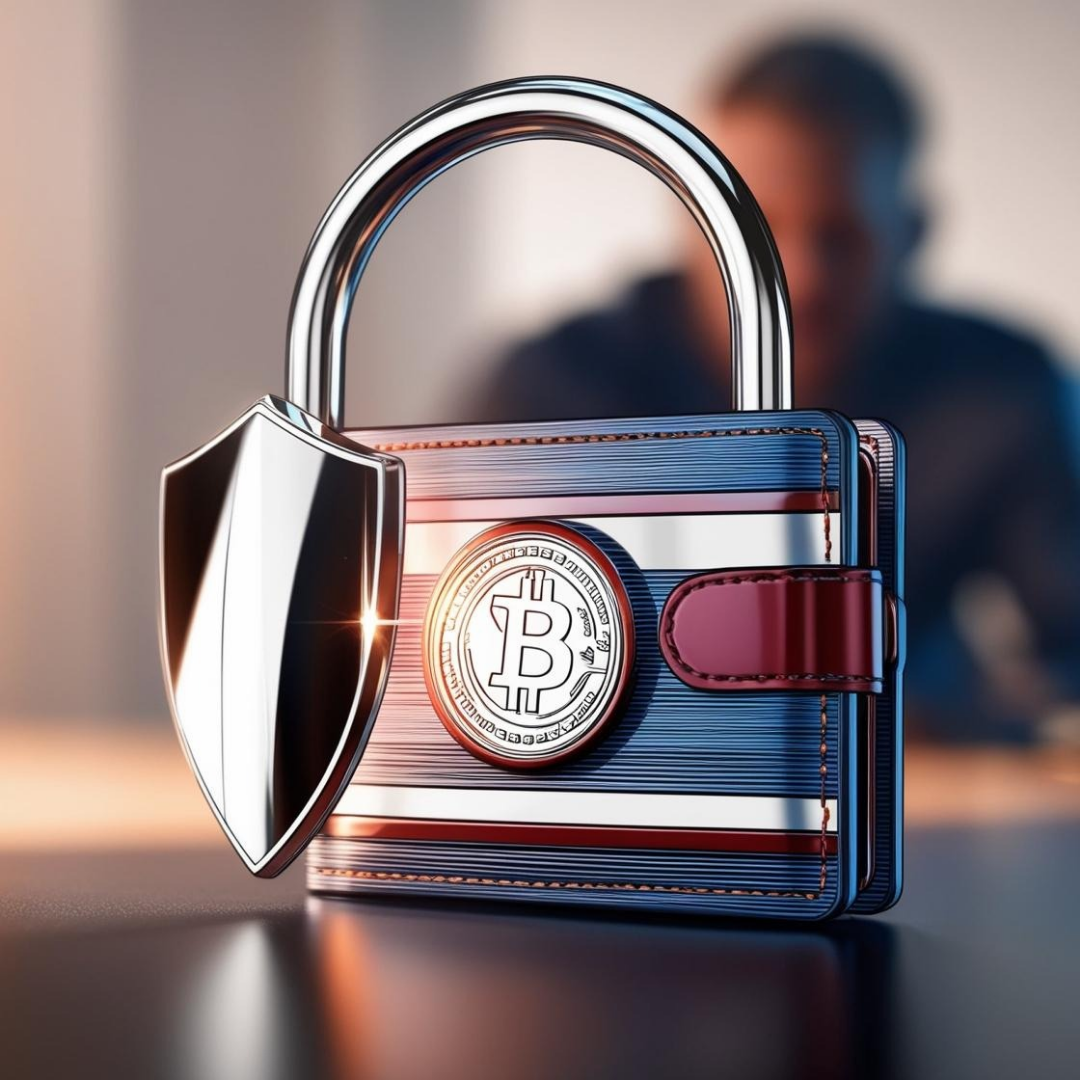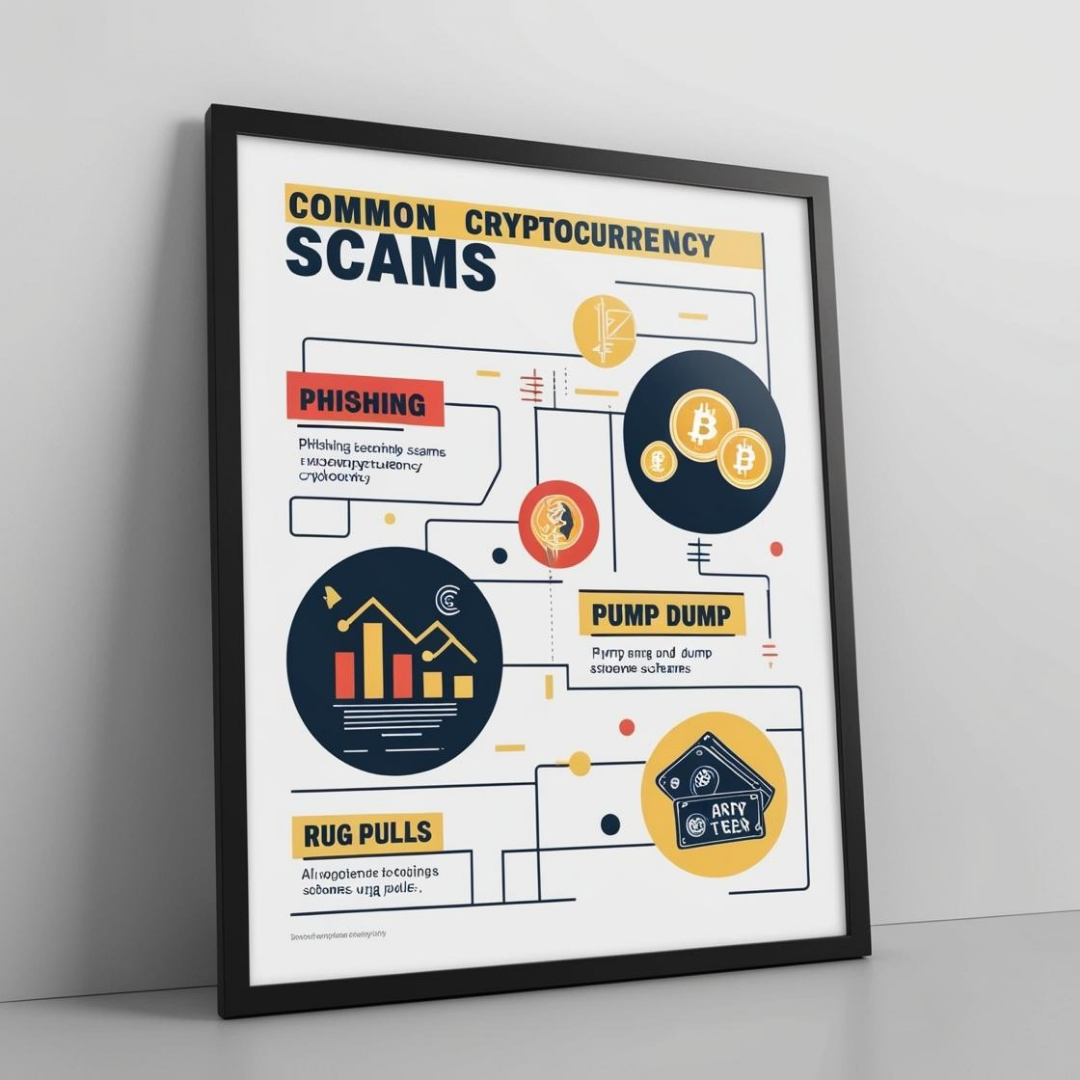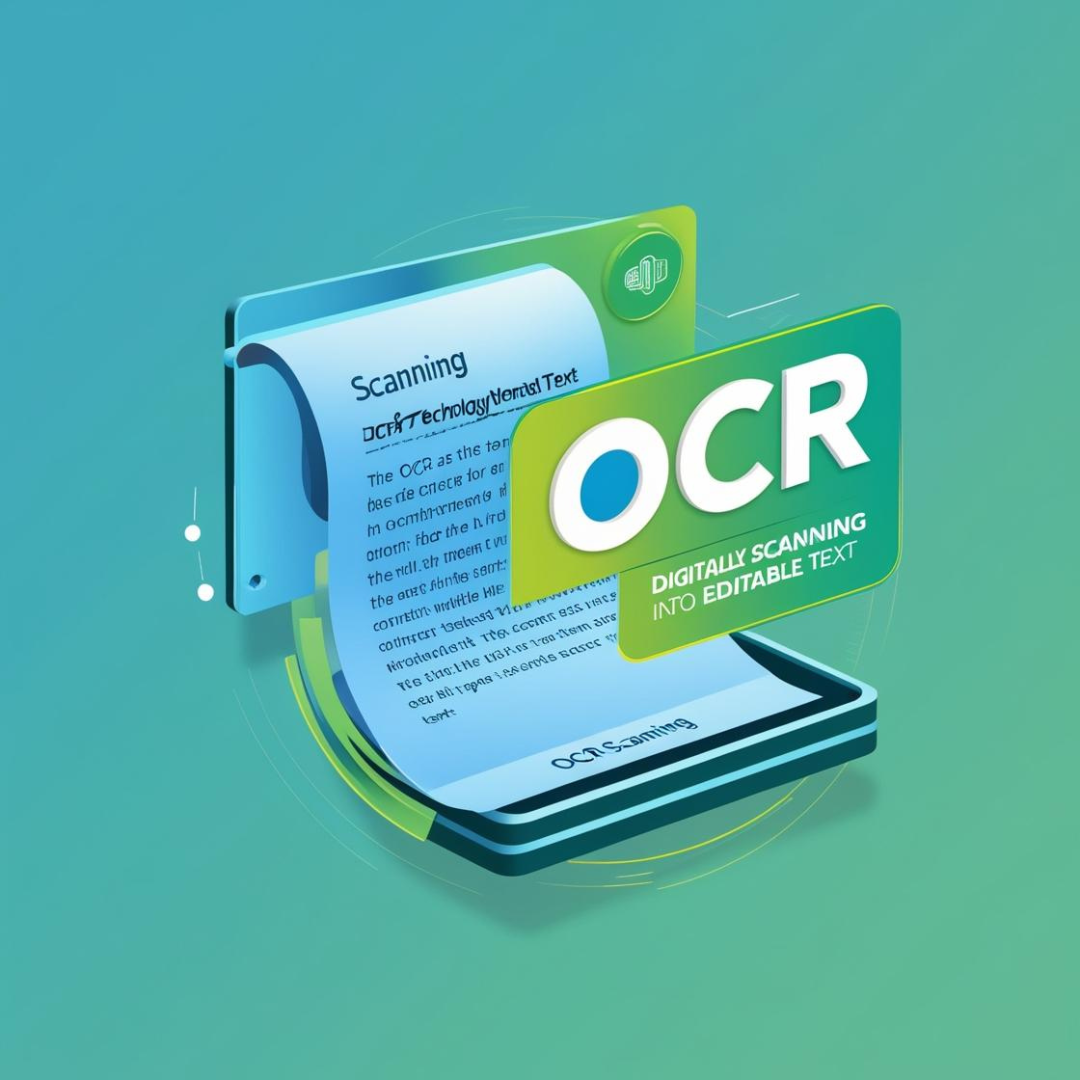The Most Common Cryptocurrency Scams and How to Protect Yourself.
With the rise of cryptocurrencies, scams have also been on the rise, growing just as fast as the market itself. Let’s take a look at some of the most common types of crypto scams and, more importantly, how you can protect yourself from falling into their traps.
1. Phishing Scams: The Bait and Switch
Phishing is one of the oldest tricks in the book. Just like when you go fishing and use a hook to catch a fish, scammers use phishing to “fish” for your personal information. They send emails or messages pretending to be from legitimate crypto exchanges or wallets, hoping you’ll click on a link or download something. Once you do, they can access your login details or private keys, leaving you vulnerable to losing your cryptocurrencies.
How To Avoid Phishing Scams
- Double-check URLs: Always verify the website you’re visiting before entering any personal details.
- Don’t click suspicious links: If you’re unsure, don’t click! It’s better to be safe than sorry.
- Keep your private keys safe: Never share your private keys. Think of them as the keys to your bank account.
2. Ponzi Schemes: The Dream Investment That Turns Into a Nightmare
Ponzi schemes promise high returns with little to no risk. Early investors are paid with money from new investors, but eventually, the scheme collapses when there aren’t enough new people to keep it going. It’s like robbing Peter to pay Paul.
How to Avoid Ponzi Schemes:
- Be cautious of guaranteed high returns: If it sounds too good to be true, it probably is.
- Do your research: Always check out the project or investment before jumping in.
3. Fake ICOs: A Scam Wrapped in a Shiny New Project
Initial Coin Offerings (ICOs) are a popular way for crypto projects to raise funds. Unfortunately, scammers sometimes create fake ICOs, sell tokens, and then disappear with your money.
How to Avoid Fake ICOs:
- Research the team and project: If the people behind it are anonymous or shady, it’s a red flag.
- Look for legitimacy: Be cautious with reviews and testimonials. Always cross-check information.
4. Pump-and-Dump Schemes: The Hype and Crash
Pump-and-dump schemes artificially inflate the price of a cryptocurrency by spreading hype and false information. Scammers push the price up, then sell their coins at the peak, leaving others with losses when the price crashes.
How to Avoid Pump-and-Dump Schemes:
- Be cautious of sudden price spikes: If the price is skyrocketing with no clear reason, it might be a pump-and-dump.
- Don’t invest based on hype: FOMO can lead to bad decisions.
5. Fake Crypto Exchanges: The Trap That Steals Your Funds
There are fake crypto exchanges that look legitimate but are designed to steal your money. If you deposit funds, you might never see them again.
How to Avoid Fake Exchanges:
- Use reputable exchanges: Stick to well-known platforms with strong user reviews.
- Check reviews: Always see what others have experienced before trusting an exchange with your money.
6. Rug Pull Scams: When the Floor Drops Out
A rug pull happens when creators of a crypto project raise funds and then abandon the project, leaving investors with worthless tokens. Unlike a pump-and-dump, where the price crashes, in a rug pull, the developers withdraw all liquidity, making tokens unsellable.
How to Avoid Rug Pull Scams
- Look for transparency: Ensure the project team is open about their plans.
- Check for liquidity locks and audits: Make sure the project has taken steps to secure investor funds.
7. Impersonation Scams: Fake Celebrities and Experts
Scammers often impersonate celebrities, influencers, or crypto experts to trick you into investing in their fraudulent schemes. They’ll promise “amazing opportunities” but are just looking to steal your money.
How to Avoid Impersonation Scams:
- Verify accounts: Always double-check that the person you’re interacting with is legitimate.
- Don’t fall for “too good to be true” offers: If it sounds too amazing, it’s probably a scam.
How to Protect Yourself from Crypto Scams:
- Use a secure wallet: Choose a wallet that you control and offers strong security.
- Enable two-factor authentication (2FA): Add an extra layer of protection to your accounts.
- Stay informed: Keep up with the latest scams and tips to stay ahead of cybercriminals.
Scams are everywhere but knowing what to look out for can save you from becoming a victim. If something sounds too good to be true, it probably is.
Stay smart, stay safe, and keep your crypto secure!
If you have any questions, feel free to drop them in the comments! And don’t forget to share this article to help others stay safe from scams.









